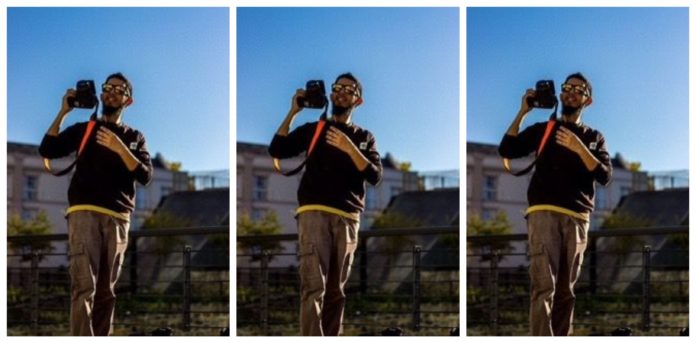Imraan Gallo, a photographer from Cape Town is legally blind. Gallo, a former mechanical engineer designer, has a passion for photography. He is hoping for an opportunity to show his skills. The Daily Vox chatted to Gallo about his life and future plans.
Background
Thirty-four-year-old Gallo was diagnosed with glaucoma at 15-years-old. Glaucoma is a group of eye conditions that damage the optic nerve, which is vital for good vision. This damage is often caused by an abnormally high pressure in the eye. It affects a person’s peripheral vision.
“I have about 15 percent vision currently. It is like looking through a keyhole,” Gallo said. In South Africa you are legally blind when you have an acuity of less than 6/60 in the better-seeing eye. This means the person sees at six metres what a normal sighted person will see at 60 metres.If you are legally blind, you may still have some useful vision.
RELATED:
Under-Resourced Blind Cricket Is Growing In SA
Photography
A “legally blind photographer” may not sound like it makes sense but Gallo disproves this. Photography has become a way for Gallo to express himself creatively. His condition doesn’t allow him to spend hours editing but he intentionally invested in the best equipment. Digital photography makes shooting easier, and he relies on auto focus to help with his work.
“I can’t sit for hours on an edit. My work has to come out of the camera as best as possible. This means working a lot slower. From experience, the industry is based on fast paced production and quick turnaround time,” Gallo said.
Gallo works in a studio most of the time. But it is costly,and he is hoping to be employed more in the future. He shoots products as well as models, and currently does make-up photography.
Two factors affected by his severely impaired vision are composition and depth perception. Gallo’s extreme tunnel vision makes him unable to grasp the full scene, and anything further than about one meter away is completely drowned in blur.
“People often say don’t give up, but my work doesn’t follow conventional appeal. Who are the audiences that would appreciate the imperfections of your art, and still acknowledge the skill required to do so? I could just give up completely but the truth is I am a visual person. I just can’t see the way most people do,” said Gallo.
Getting into design
Gallo finished most of his schooling in Johannesburg, and moved back to Cape Town in 2012. Gallo said his love for design flowed into photography when he first picked up a camera. In 2018, he had to stop working in design which was not easy to let go of. Gallo said the love for how things work remains.
Gallo said he was always fascinated by design and all its aspects. He has a particular love for cars that goes beyond the brand, and how the vehicle looks. He is more interested in how it is all pieced together. Gallo has travelled all over South Africa – shooting at drifting events.
“I love how things are put together, how machinery works. It is like looking at a mechanical symphony,” said Gallo.
“As an engineering designer I stripped apart, inspected, drew and assembled almost every mechanical component from a washer to a piston and a cam to a bolt,” said Gallo.
Future plans
Gallo has approached agencies for representation as a photographer, but says it has almost always come up empty. “I get sugar-coated responses like my work does not fit into their aesthetic and so on,” he said.
In the UK, Zebedee Management is a specialist talent agency which aims to increase the representation of people excluded in the media, including those with disabilities. Gallo asked why there are no such establishments locally. He said visibility is important and people with disabilities are capable, and just need opportunities to do so.
Ian Treherne, a blind photographer from the UK, recently photographed athletes for the 2021 Tokyo Paralympics. In 2016, Joao Maia from Brazil became the first visually impaired photographer to obtain accreditation to shoot the Rio Paralympics.
Gallo challenges perceptions of blindness, and is striving to make the best of the sight he has through his photography. He has adapted even with many changes to his vision. Technology and its constant evolution has aided his creativity. There are many days when he feels like selling all his gear, but he doesn’t. Gallo said he is asking to be given a chance. His passion and will exists, and now it is up to the world to take a chance on him.
RELATED:
Teaching the blind: “a blind child is a blessing like any other child”
“I just want to be given an opportunity to work. I may need a bit of a more curated environment to do so, but I am capable, and hopeful,” Gallo said.
Gallo’s work can be seen on Instagram









